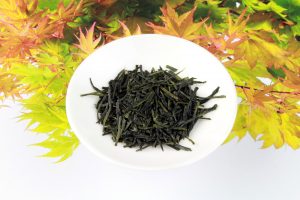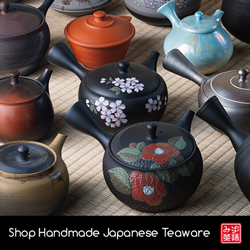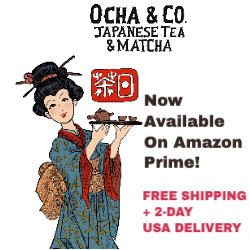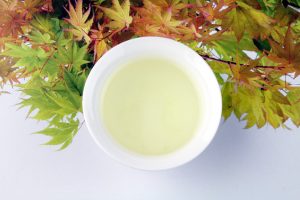Masters Teas is a sister site of Adagio Teas.
Its focus is high grade artisan tea.
I’ve been fortunate enough to receive a couple of Japanese teas from them.
This review is about their shincha sencha, made in Shizuoka prefecture by Mr. Katahira.
There isn’t much information in their website about the tea itself or the farmer.
So I took the time to find the company. It’s Houkouen.
However, I couldn’t identify the tea itself because the company makes different types of Japanese teas and has about twenty tea cultivars.
From what I read, this green tea is lightly steamed (asamushi).
Let’s taste it
I think that the name of this tea, shincha sencha, sounds rather odd.
The word shincha by itself already suggests that it’s a sencha.
Anyway, the leaves do smell like a shincha. It’s very sweet.
Surprisingly, there is a fruity aroma. Maybe peach?
It’s not something I had experienced before in a Japanese tea.
The appearance of the tea leaves is excellent. Nothing else to say.
Since it’s a shincha, I’ll use the following brewing parameters: 60 ml (2 oz) of water at 80 ºC (176 ºF) with an infusion time of just 40 seconds.
After the infusion, the aroma of the wet leaves is much different from when they were dry.
Deeply marine, almost salty. Low sweetness, and notes of fresh vegetables.
The liquor has a pale yellow color.
Time to give it a try.
I find the flavor to be very fresh.
It has a high umami taste, although I thought that it would be stronger.
There is some sweetness, and no bitterness nor astringency. It feels mild.
Overall a very good taste.
Now I’ll go ahead and taste the second infusion. I prepared it in the same way.
The liquor became a darker tone of yellow.
While it has less umami taste, I liked it.
I then made a third infusion and it was very similar to the second one, except that it was a lighter flavor.
The product page says that this tea can be infused seven times.
Perhaps it can, but the last infusions would be too weak for my taste.
So I just prepared the fourth infusion with boiling water for 10 seconds.
The flavor is still light, but it is enjoyable.
It’s a unique tea because of its aroma. I wonder what cultivar it is.








October 29, 2019
I find that shincha tastes better after it has aged about 9 months. It has too much raw energy like a teenager that I find off-putting.
October 29, 2019
Hi Terry, thank you for your comment.
Yes, most Japanese green teas are often aged, meaning that they are kept at low temperatures for a long time. You might be having a sencha that is more than a year old, but when you open the package it feels very fresh.
Aging makes it less astringent, takes some of the grassy taste.
However, shincha by definition is the very fresh tea, people want to drink it as soon as possible. So if you age it it’s not really shincha, but it is still a high quality sencha.
October 30, 2019
Thanks for the tip about Masters Teas.
October 30, 2019
You’re welcome Bill.